Transcription
Robert Bateman:
Hello. Welcome back. Thanks for joining us again at FinCrime Global day two, we are halfway through the day now. We’ve had some fantastic session and thanks all so much for asking so many questions of our panelists. That’s a great reason to come to these events is to really interact with people leading in this space and putting this stuff into practice on the ground too. So a big thank you to our sponsors once more Blackdot Solutions, BioCatch and TrueNarrative for supporting this event.
Robert Bateman:
Up next, we have a presentation from Nicholas Ryder, who is professor in Financial Crime at the University of the West of England. And the presentation is about the U.K.’s Economic Crime Bill and what it means for you. I’ll hand over to Nicholas now. Over to you Nicholas.
Professor Nic Ryder:
That’s great. Thank you Robert for that very kind introduction and I shall… You can see the slides, that’s brilliant. So I couldn’t have picked a better topic really, to discuss with you for the next 20, 25 minutes or so. We’ve had, with the Russian invasion of Ukraine, a raft of policy initiatives, speeches by various government ministers over the last two months, to introduce a law which has been planned since 2014.
Professor Nic Ryder:
So what I’m going to do over the next half an hour is to take you through what the main aspects of the bill are, the act, sorry, provide you with a bit of context, first in relation to the U.K.’s broader financial crime strategy and then to discuss it in a little bit more detail how the 2022 act will affect Unexplained Wealth Orders, Beneficial Ownership, and of course the sanctions regime. And I’ll then offer some final thoughts in relation to, as a reflection, on what the government has done, what the government hasn’t done and what maybe we can expect in the forthcoming remainder of the calendar year.
Professor Nic Ryder:
So the presentation is divided into seven aspects. The first part will be the context, the background, giving a brief historical review of where we’ve come from and how we’ve ended up with the Economic Crime Act. And then to look in a little bit more detail at the reasons as to why it was introduced by the current Conservative government. And then specifically look at what the act does, and then divide up the register of overseas entities, Unexplained Wealth Orders, sanctions reform, and of course the final thoughts on how my research can feed into this area.
Professor Nic Ryder:
So if we look at the background and context, I just wanted to reemphasize the findings of the 2018 Mutual Evaluation Report from the Financial Action Task Force in December of 2018. It’s hard to believe that that report was published over three and a half years ago. And the Financial Action Task Force concluded that the U.K. had the best anti-money laundering and counter-terrorism financing regime in the world.
Professor Nic Ryder:
So as part of that detailed 250, 300 page Mutual Evaluation Report, the Financial Action Task Force identified a number of examples of best practice, one for example being the exchange of information via the Joint Money Laundering Intelligence Task Force, and how that’s appear to be best practice. To the extent that’s been adopted by multiple jurisdictions around the world, including Australia, Singapore, Thailand, Bahrain, and more recently United Arab Emirates.
Professor Nic Ryder:
Against that of course, there are some weaknesses within the U.K.’s AML and CTF regime. One of the principle weaknesses is of course, the use of Suspicious Activity Reports and the lack of implementation of the recommendations for the Law Commission in the last three years. So it’s against that background, I just wanted to ease our way into the journey from 2014 up until of course, 2022.
Professor Nic Ryder:
Unsurprisingly, several government ministers have identified and flagged in press releases and newspaper interviews, the very good rating from the Mutual Evaluation Report. John Glenn, the Economic Secretary for the Treasury and City Minister stated in the press release, “There’s absolutely no place for dirty money or the people that launder it in our country, so I’m incredibly proud that today’s report confirms that the U.K. has one of the strongest regimes in the world to deter those criminals.”
Professor Nic Ryder:
That statement was echoed by the current defense secretary, Ben Wallace, who was then the Minister for Security and Economic Crime, “The U.K. has taken a leading role in the global fight against illicit finance. I’m delighted with today’s report which shows our efforts have been recognized and sends a strong message to criminals that we will come for them, their assets and their money.”
Professor Nic Ryder:
But that then got me to think, well, is that report really presenting, despite its merits in relation to its methodology and its detailed discussion, does it really represent an accurate reflection of the U.K.’s current levels of compatibility with the recommendations, but also with enforcement strategy and what are the alarming gaps in the U.K.’s financial crime strategy?
Professor Nic Ryder:
So there’s a report by RUSI, the very, very eminent London think tank that concluded after the mutual evaluation reports, “The U.K. remains central to global money laundering schemes. It brings into question the relevance of this evaluation.” So I think what’s particularly relevant to the implementation of the Economic Crime Act of course, is the Russian illegal money or legal money within the U.K., from oligarchs and other well known individuals.
Professor Nic Ryder:
So you’ve got five, I think, very credible sources, which would support the statement by RUSI. So for instance, you’ve got the United States Department of State Bureau of International Narcotics in 2020, which indicates that London is, and surrounding areas, highly susceptible to illicit financial flow, fraud, and of course, rated money laundering. And then two very damning reports by a variety of House of Commons select committees. The first of which was published in 2018, which is the House of Commons Foreign Affairs Committee Report entitled, Moscow’s Gold: Russian Corruption in the U.K.. And we then got the, perhaps even more damning reports by the Security Committee of Parliament in relation to Russian money.
Professor Nic Ryder:
So it’s against that background and context that people began to question the effectiveness, sufficiency and the gold star rating provided by the Financial Action Task Force in it’s 2018 Mutual Evaluation Report. So if we delve into it in a little bit more detail, we can find that there are some benefits with the government then, but also some areas that have needed to be the fraud needs to be spelled out quite significantly. So briefly Fraud Act 2006, published along with the Fraud Review of the same year. We’ve got the Bribery Act efforts by the then Labor Government to respond to the OECD’s critical report of the U.K.’s level of compliance with the 2003 convention against corruption. Of course, the key part of the Bribery Act is Section Seven of the Bribery Act, which of course applies this to corporations and the introduction of the failure to prevent offense.
Professor Nic Ryder:
What we have seen of course is convictions under Section Seven and up to 12 deferred prosecution agreements being used by the serious fraud office. That model was deemed to be successful by the current government and the remit of [inaudible 00:09:13] was extended to tax evasion. And the section was 45 and 46 of the 2017 Act. Of course, interesting that it applies to domestic and international tax evasion. And against that background, we’ve got allegations in the Panama Papers, the Paradise Papers, the Finsan papers that the U.K. appears to be used as a central hub for tax evasion and tax avoidance.
Professor Nic Ryder:
So when I’ve digged into that in a little bit more detail, expecting there to be deferred prosecution agreements by HM Revenue and Customs, despite freedom of information requests by other researchers, there are no deferred prosecution agreements used by HM Revenue and Customs, and the Criminal Finances Act. Lots of investigations, of course, and the HMRC are very effective at using the asset recovery provisions under POCA.
Professor Nic Ryder:
So again, you can see that there’s a little bit of a chink in the armor. 2017, the Ministry of Justice published its long awaited consultation paper on Corporate Criminal Liability. And after three years of, I would assume was delay, in fact the reasons are not particularly aware of, the government announced that they were unsatisfied with the level of options available and of course, asked the Law Commission in 2020 to investigate corporate criminal liability. The Law Commission published a discussion paper in last August and from my understanding, their response will be published in the early part of the summer, perhaps June or July of this year, that outlines their options.
Professor Nic Ryder:
We could speculate that the government could adopt a failure to prevent model for economic crime. And of course there were an attempt with the 2021 Financial Services Act, I believe it was clause four, but because of a lack of parliamentary time and the government asking the Law Commission to investigate this further, that’s been delayed and has been accusations by the press and anti-corruption groups that the government had been accused of kicking corporate financial crime into the long grass.
Professor Nic Ryder:
But we then got the U.K. Anti-Corruption Plan. And I remember this and David Cameron was a very staunch advocate of tackling corruption and a key part of that was the Economic Crime Bill. Now it’s taken eight years for the government to implement the Economic Crime Bill, which I would argue is far too slow. And there are many, many, many flaws and gaps within the U.K.’s money laundering legal framework, terrorism financing, and also fraud. So to address some of those concerns, it entrenched the government, the outcome was the Economic Crime Plan, which of course finishes in 2022. And I know that there are new initiatives planned to tackle fraud and money laundering later this year.
Professor Nic Ryder:
But just to give you two statistics, according to a 2020 study by the Office of National Statistics, fraud in the U.K. accounts for 40% of all reported crime and of that 40%, 54% is cyber enabled. Yet we still don’t have a fraud strategy. So the government has promised this last summer, January, and it’s expected in the summer, but you have a crime which clearly undermines the reputation of the City of London. It undermines the reputation of the U.K. economy. It undermines the reputation of financial services, providers and companies, and also it affects the victims of fraud, but we still don’t have an economic crime strategy. So you have to consider why is it taking eight years for the British government to implement a bill that was proposed eight years ago? And it’s obviously frustration from within the House of Lords has led to ministers resigning. So it’s against that background that we’ve ended up with the Economic Crime Act of 2022.
→ SEE ALSO: FinCrime World Forum
Part of the Digital Trust Europe Series - will take place through May, June & July 2022, visiting five major cities;
Brussels | Stockholm | London | Dublin | Amsterdam
Get to the edge of the financial crime debate at FinCrime World Forum.
Professor Nic Ryder:
So one of the things that we have to briefly consider is, what does the act cover? And essentially you can argue it’s divided into three particular parts. You’ve got the register of overseas entities. We’ve got Unexplained Wealth Orders that were initially introduced by the 2002 Proceeds of Crime Act and of course we have sanctions reform. Now the bill was some would argue quite rightly, rushed through parliament, following the Russian invasion of Ukraine between six to eight weeks ago. So let’s take a look in a little bit more detail, how these measures could affect you and your firm from a compliance perspective.
Professor Nic Ryder:
So in terms of the Register of Overseas Entities, the Act creates a new register which includes information about overseas entities that own U.K. property and their beneficial owners. So clearly there is a need to address a deficiency within the U.K.’s levels of compliance with the Financial Action Task Force recommendations, and also concerns raised by academics and think tanks across the U.K..
Professor Nic Ryder:
Now, where there is no registration, the entities, the individual company, can face sanctions, which could include possible restrictions and of course, a daily penalty of 500 Pounds and a prison sentence if convicted of up to 500 years. So it’s an attempt to address the loophole. Does it go far enough? Probably not. There are other areas of loopholes within the U.K.’s legal framework that need to be carefully addressed by the current government.
Professor Nic Ryder:
Unexplained Wealth Orders. One of my favorite topics, asset recovery, introduced via Section One of the Criminal Finances Act as contained in sections 362A and 362I of the Proceeds of Crime Act. So this means, of course, that law enforcement agencies can apply to the high court for an Unexplained Wealth Order. Importantly, these provisions are aimed at already supplementing and further encouraging the use of a Criminal Confiscation Order under the Proceeds of Crime Act, a Civil Confiscation Order, and also taxation of the proceeds of crime. So this is a new weapon in the armament for law enforcement agencies in the U.K..
Professor Nic Ryder:
So briefly Unexplained Wealth Order will be granted when the respondent holds property, which exceeds 50,000 Pounds, and importantly, there’s reasonable grounds to suspect the respondent’s lawful income is insufficient to obtain the property. So the respondent must be a Politically Exposed Person, or there must be a reasonable grounds to suspect the respondent is, or has been involved in crime. And as a lot of you will probably know this is a very expensive mechanism for law enforcement agencies to pursue. So a key part of the 2022 Act is to try to expedite the process and also to reduce the financial costs for the relevant law enforcement agency.
Professor Nic Ryder:
So we’ve got four Unexplained Wealth Orders that have been obtained by the National Crime Agency at an estimated value of 143.2 million Pounds. And then again, you’ve got two images of people subjected to an Unexplained Wealth Order, Zamira and Mansoor. I’m not going to go into the cases with you, because you’ll obviously be familiar with those.
Professor Nic Ryder:
So the Unexplained Wealth… the Act makes it easier for LEAs years to obtain an Unexplained Wealth Order. The rules and costs have been reformed to actually limit those costs. In some of the initial Unexplained Wealth Order cases brought by the National Crime Agency, cost exceeded 1.5 million Pounds. So there is a very similar criticism of Unexplained Wealth Orders as to the initial provisions of the Proceeds of Crime Act, as these were new measures for, at the time, the Asset Recovery Agency, then of course SOCA, now the NCA. It was a new way of law in terms of testing the remit of the legislation in terms of courts. And importantly LEAs are also given more time to review the material provided and in response to the Unexplained Wealth Order.
Professor Nic Ryder:
Perhaps the most far reaching parts of the Economic Crime Act will be of course, the use of sanctions. So sanctions are defined by the British Government as a political trade restriction, put in place against different jurisdictions with the aim of restoring international peace and security. Of course, the U.K. has a long history of implementing sanctions and sanctions have formed a key part of what some academics refer to, as the financial war terrorism. And they’ve been targeted at the likes of al-Qaeda, ISIS, Boko Haram, al-Shabaab and a broad range of terrorists and terrorism financiers. More recently, the U.K. has used them against human trafficking gangs. So their remit is extensive and some would argue that their principal objective is to maintain international peace and security.
Professor Nic Ryder:
So therefore it is unsurprising that following the Russian invasion of Ukraine in the last two months that the U.K. Government, the European Union, the perceived West and many nation states have imposed sanctions, wide ranging sanctions, on members of the Russian parliament, members of the FSB, the Russian Security Services, Russian intelligence agencies, Russian armed forces, and so on, and obviously the hierarchy within the Kremlin.
Professor Nic Ryder:
So the principle objective of those sanctions is to actually prevent the transfer of funds to that sanctioned country. So obviously if you’re a compliance officer, this is a very difficult part of your job. And it’s very important to keep up to date with those lists that are frequently published by HM Treasury, and also by the U.S. Treasury Department under OFAC. It can also be used to target asset freezing of individuals and entities and of course, the Foreign Secretary indicated yesterday that the U.K.’s frozen about 60% of Russian financial reserves all over the world. And sanctions can apply to individuals, companies, governments, and maybe resident in the U.K. and abroad. So their remit is global. So you can see why they are a popular method of enforcement from various government perspectives.
Professor Nic Ryder:
So in particular, if you break the Act down very briefly, the Act could result in more enforcement by the Office of Financial Sanctions, a full list of their publication, sorry, of their fines is available on their website. So I think what we will see is, because of the alteration in the test, so the previous test was there had to be reasonable cause to suspect, that’s now been replaced by a strict liability approach. So clearly you can see the government here really increasing the need for firms to comply with the sanctions regime. So I think what we’re possibly going to see is that the OFSI I will have a name and shame policy, so that will draw maybe some comparisons with the Financial Action Task Force gray list in terms of jurisdictions around the world which have a variety of levels of compliance. But it’s not the purpose of the presentation to discuss in some detail the benefits of a name and shame policy.
Professor Nic Ryder:
So in relation to the final thoughts, I think it’s fair to say that the Economic Crime Act is a welcomed addition to the U.K.’s financial crime armory. But the key point for me is the eight year delay. I think it’s fair to say that the legislation should have been implemented to coincide with the publication of David Cameron’s anti-corruption plan in 2016.
Professor Nic Ryder:
I do think that there is a certain amount of apathy within central government, as we’ve seen with the lack of counter fraud strategy by the government, that’s managed by the [Cabin 00:21:34] office and the Home Office. And we’ve seen at least 56 billion Pounds, according to the Public Accounts Committee, which has been through furlough fraud. Some of that no doubt, will have gone into organized criminal gangs from projects that I’m involved in. So again, you can see that there is a significant threat presented by fraud, and you can argue even from a national security perspective that recent studies have indicated that for myself and also the think tank, RUSI in London. Apathy also links into, I think, the adoption of the failure to prevent model. There’s disagreement between academics and surprising relation to the benefits of that particular approach.
Professor Nic Ryder:
And then the last point really is more of a rhetorical question. Would the Act have been introduced if Russia did not invade the Ukraine? I mean, we’ve known about Russian money in the U.K. for decades. There are many loopholes that I’m sure the people listening are very well aware of. And there are many other mechanisms which need to be rectified. But I think that you’re never going to have a foolproof financial crime strategy or financial crime legal framework. So it’s important that the Economic Crime Act closes some of the loopholes, but again, a lot of this will come down to enforcement. I think it’ll be intriguing to see what enforcement strategies the government will pursue over the next few months.
Professor Nic Ryder:
And I’ll be happy to take any questions from anybody.
Robert Bateman:
Hello, Nick, thanks so much for that really interesting presentation. I’ve been meaning to get my head around the ins and outs of this Act. Of course, we titled this session, the Economic Crime Bill, but it’s been brought forward as you know, it’s become an Act now, which is quite pertinent actually, because I understood there was some debate around the delay there.
Robert Bateman:
Are you happy Nick, to stay on for a moment while I put some of these questions from the audience to you?
Professor Nic Ryder:
Yeah. Very happy to. I’m going to answer them as best as I can.
Robert Bateman:
Thank you. So a lot of comments from the audience more than questions in this case. Lots of concerns about the possible loopholes, which you have covered to some extent I think. Well, a question from me, first of all, about the likely enforcement regime here. What’s your gut instinct on enforcement? I mean, do you think the government will be bearing in mind the possible economic consequences for London, if it goes too hard in enforcing this law, or do you think we are likely to see a pretty strict enforcement regime?
Professor Nic Ryder:
That’s a good question. Thanks for that. I’ve really sort of set me up to fail in the first question. I think from an enforcement perspective, I think what we will see, I think with a strict liability fence, I think it will naturally lead to more enforcement by the government for sanctions abusers. Whether we’ll get to the level of enforcement of the U.S. level through OFAC? I doubt very much. I mean, we’ve got HSBC and the 2012 DPA at $1.9 billion, we’ve got Lloyd’s TSB plus other enforcement actions by the U.S Treasury Department. I think the government will be conscious of what some people refer to as the collateral consequences of a significant or huge financial penalty. Luckily in the U.K., I’m not aware of any examples of where a company has failed because of a financial penalty. So we’re not talking the Arthur Anderson effect in relation to the Supreme Court decision overturning that.
Professor Nic Ryder:
So I think the government will be very mindful. I think part of the difficulty is that a lot of commentators would argue that the U.K. would have the legal framework, they would have the enforcement mechanisms, but there appears to be a lack of apathy to use some of those enforcement powers. So I think that it’s important that there is a unified united enforcement strategy in front, but the government has to be mindful of its impact. I mean, to me personally, based upon my research, I think enforcement is maybe a C- grade. I think we have a favor for financial penalties and whether that’s the most appropriate model and based upon research that I’ve conducted, you tend to find that the offending company, you then becomes a persistent repeat offender. If I speed on the M-4 multiple occasions in a week, I’ll lose my license. But of course you then got the issue of too big to fail, too big to jail, too big to fail, too big to jail. Then you can’t simply revoke the license of a multinational corporation, because of the impact on society and the economy.
Robert Bateman:
That’s right. So lots of factors to weigh up for the regulators here. Interesting, the shift from a kind of reasonable suspicion I think, approach to strict liability. How significant do you think that will be in strengthening the law here? Was it previously easy to argue that you didn’t have a reasonable suspicion of suspicious activity or would that be a significant amendment, do you think?
Professor Nic Ryder:
I think the reasonable suspicion is, again, it’s on a case by case base set. It’s like the definition of dishonesty, one jury in Cardiff can reach a different definition to the jury in Bristol. So I think you’re always going to have that uncertainty about what the term actually means. I think strict liability is a brave step by the government. It will increase levels of anxiety within the compliance sector. I know the compliance sector are already very stressed in terms of money laundering, terrorism financing, and of course, an ever expanding sanctions regime list. So I think it could lead to more enforcement activity. It’ll be intriguing to what the levels of fines are, because if you look at the government sanctions enforcement strategy, so far there are fines of a thousand Pounds, there are fines which exceed millions of Pounds. So I think it’ll take four or five examples just to get a fair reflection on where the government is with some of these financial penalties.
Robert Bateman:
One final question here if you don’t mind Nick, from the audience about international collaboration, particularly with the question I asked with regard to gangs and cartels ill gotten gains. Are there other countries that are actively participating where they did not in the past? I suppose we could generalize that out a bit if you prefer. Are we seeing the U.K. taking a central role in an international effort here, or is the U.K. quite isolated in this regard?
Professor Nic Ryder:
I think that if you look at the companies who impose sanctions on the Russian people involved in the Russian invasion, I think it is obviously the European Union, 26 member states, Canada, the U.S., the U.K. are clearly pushing it, there are another nation states such as Japan, but of course there are jurisdictions which are a little bit maybe hesitant, reluctant to use the sanctions. I mean, I look recently to United Arab Emirates for example, I look at India obviously has a long historical relationship with Russia. And obviously the Chinese neutrality at the minute is very interesting. So I can contrast this with how the sanctions regime was implemented after 9-11, where under U.N. Resolution 1373, which under the Chapter 7 of the U.N. Charter that is legally binding on every country in the world. We haven’t got that with the Russian invasion.
Professor Nic Ryder:
So I think that there are some differences between the two regimes, but I think the government’s taking some important steps, but why weren’t these steps taken a decade, 15 years ago? So if researchers indicated that the illicit Russian money is there, why has it taken an invasion in Eastern Europe for the government to do that? That would be my criticism.
Robert Bateman:
Yes, indeed. I keep hearing how the U.K. has long been seen by some as a kind of center of a lot of this illicit activity and it took a very… We had the poisonings on U.K. soil, we had the annexation of Crimea and it’s taken this very extreme act of war to trigger meaningful legal response, I think, in the U.K..
Robert Bateman:
Well, thank you so much, Nicholas. Fascinating look into a very complicated area of financial crime regulations. So really appreciate your insights there as always.
Professor Nic Ryder:
My pleasure.
Robert Bateman:
So stick around. Up next, we’ve got another session on economic crime. Economic crime from conception to response. We will be running that at 2:00 PM U.K. time. So that’s in just under half an hour. Hope to see you back here for that.
FinCrime World Forum
Part of the Digital Trust Europe Series - will take place through May, June & July 2022, visiting five major cities;
Brussels | Stockholm | London | Dublin | Amsterdam
Get to the edge of the financial crime debate at FinCrime World Forum.
FinCrime World Forum is a two-day in-person event taking place as part of the Digital Trust Europe series. The event will feature presentations and panels from thought-leaders and anti-financial crime professionals that are leading the way on how we can better, more efficiently and more effectively fight financial crime.

Understanding the Economic Crime Bill and what it means for you
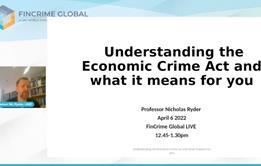
Understanding the Economic Crime Bill and what it means for you
 Currently
reading
Currently
reading
Understanding the Economic Crime Bill and what it means for you
- 2
- 3


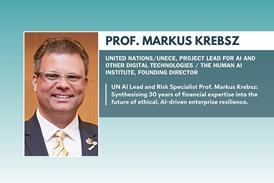







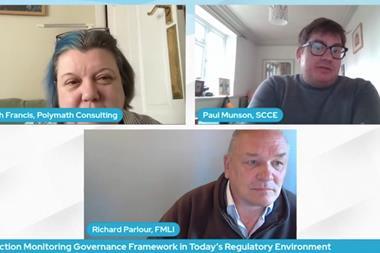
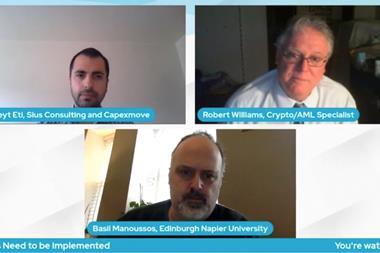







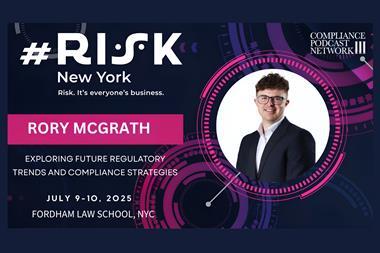







No comments yet